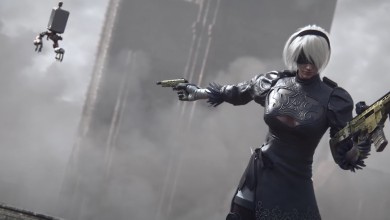Story Highlights
- There has been a very notable lack of AAA horror games in recent years.
- A niche audience and uncertain returns compared to mainstream genres deter investment.
- AAA studios need to break away from tired tropes and innovate the genre.
Horror has always been a genre that both captivates and terrifies players. From the spine-tingling suspense of exploring dark corridors to the adrenaline rush of narrowly escaping a monstrous foe, horror games immerse players in worlds of fear and intrigue. However, despite its popularity, there seems to be a noticeable absence of AAA titles in the genre. This begs the question: Why is no one making AAA horror games anymore?

The Decline Of Innovation
The decline in AAA horror games can be attributed to a lack of innovation within the genre. Historically, games like “Silent Hill” and “Resident Evil” broke new ground with innovative gameplay, storytelling, and atmosphere. However, recent years have seen a stagnation in fresh ideas. Many AAA horror titles rely on clichés, leading to predictability and diminished impact.
Indie horror games, on the other hand, thrive on creativity and experimentation. With more freedom, indie developers bring fresh concepts to the table, attracting players seeking innovative experiences. This trend has diverted attention from AAA titles, which struggle to keep up. To revitalize the genre, AAA developers must reignite innovation. They need to break away from tired tropes and explore new ideas.

Innovation isn’t just about flashy graphics or big budgets; it’s about pushing boundaries and surprising players. AAA developers must remember what made classics like “Silent Hill” so captivating—bold storytelling, immersive gameplay, and unforgettable atmosphere. Only then can they reclaim their position as leaders in the horror gaming landscape.
Just take a look at PT, the horror demo game that took the internet by storm back in 2014. Aside from making you feel old reading how long ago it came out, Hideo Kojima’s take on the genre was groundbreaking. Unfortunately, Kojima and Konami had a falling out which caused the game to be abandoned. But don’t worry, because he has another horror title in the works, and it features something PT players are very familiar with.
Hideo Kojima is iconic for using the PT Door as his entrance to #TheGameAwards pic.twitter.com/RQJGx39g1G
— IGN (@IGN) December 8, 2023
The High Cost Of Production
The scarcity of AAA horror games is heavily influenced by the steep production costs associated with creating them. Crafting a AAA title demands significant investments in time, finances, and resources. Horror games are no different.
These costs often soar, deterring investors due to the genre’s niche appeal and uncertain returns compared to mainstream genres like action or sports. Furthermore, modern game development’s complexity has only intensified production expenses across all genres. As technology evolves, players expect higher-quality graphics, more immersive gameplay, and expansive worlds.
Meeting these demands necessitates even greater investments, making it harder to justify the creation of AAA horror games financially. Developers face a conundrum, which is how to balance quality with cost-effectiveness. I personally don’t mind graphics. As long as the game is fun, anything goes. Many people loved playing indie hits like Phasmophobia and Lethal Company.
As a matter of fact, my favorite game of all time is Anachronox. However, I do understand that there is a vocal cult mindset in the gaming community where people confuse graphics with quality. Naturally, AAA studios usually have to keep this crowd in mind while making games.
They say that gameplay is more important than graphics but how often do people take into account of how graphics help sell the atmosphere of a game?
byu/sammyjamez intruegaming
The Shift Towards Multiplayer And Live Service Models
Recently, there has been a noticeable shift in the gaming industry towards multiplayer and live service models, with many developers prioritizing online experiences over single-player campaigns.
This trend has been driven by the increasing popularity of games like “Fortnite,” “Call of Duty: Warzone,” and “Apex Legends,” which offer players the opportunity to compete and cooperate with others in dynamic, ever-evolving environments.
While multiplayer games certainly have their merits, they often prioritize action-packed gameplay and social interaction over the slow-burning tension and atmospheric storytelling found in traditional horror games.
Additionally, the live service model allows developers to generate ongoing revenue through microtransactions, DLC, and subscription services, providing a more sustainable source of income compared to one-time sales.
As a result, many AAA developers may be more inclined to invest in multiplayer titles that offer greater long-term profitability, rather than single-player horror experiences that may have a limited lifespan. While this shift towards multiplayer gaming has undoubtedly enriched the industry in many ways, it has also come at the expense of traditional single-player experiences, including AAA horror games.

The Road Ahead
The decline of AAA horror games can be attributed to a variety of factors. However, despite these challenges, the demand for immersive and terrifying gaming experiences remains as strong as ever. If AAA developers can find ways to overcome the obstacles facing the genre and reignite the spirit of innovation, there is no doubt that horror gaming will once again rise to prominence in the industry.
Thanks! Do share your feedback with us. ⚡
How can we make this post better? Your help would be appreciated. ✍



![How to get gold in Naraka Bladepoint [All possible methods]](https://exputer.com/wp-content/uploads/2023/08/How-to-get-Gold-in-Naraka-Bladepoint-390x220.jpg)